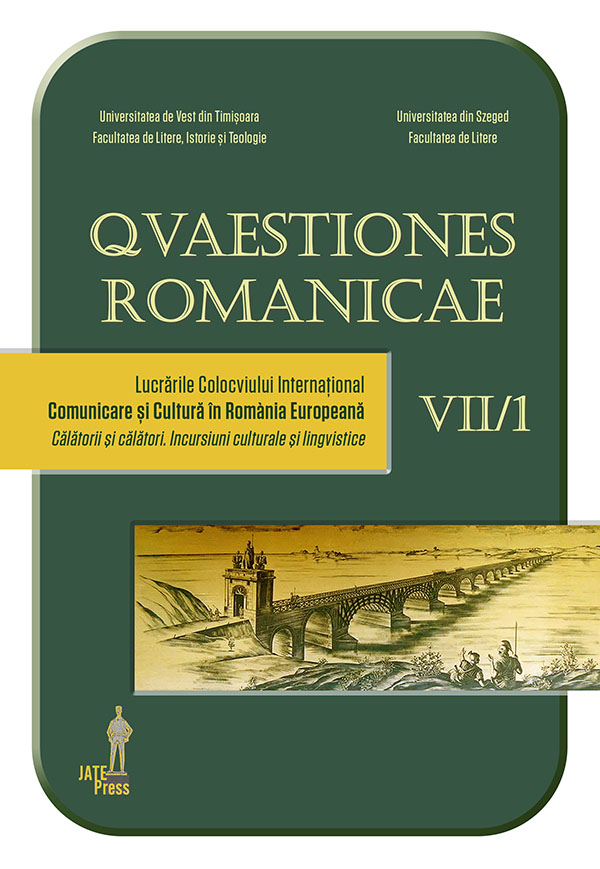Exilio lingüístico –viaje sin mapas
Abstract: (Linguistic exile – a voyage without maps) Just like travelling, exile appears to be intrinsic to the human self and is perceived today as a form of alienation, of estrangement that was once synonymous with the concept of identity. Seen from the perspective of the present, exile establishes a space without borders and outlines a voyage without maps, as stated by Chenjerai Hove in a lecture. The narrative of the literature in and from exile finds its roots in the cultural dimensions of the country of origin, thus showcasing an itinerary of the text that transgresses borders and builds up a microcosm of creativity with diffuse margins. We can state that the linguistic exile posits the idea of the frontier understood as a defining space for the identity of the subject. The coming-and-going between the mother tongue and the language from the country of adoption highlights a continuation of inhabiting the universe from the country of origin. Sometimes, this coming-and-going between the two languages underlines that, in spite of the fact that one is writing for a new audience, the references that may be traced in the literature from and in exile are an internal radiography of the uprooted-not-uprooted self. This may be observed in some poems of two representatives of the Romanian exile in the Spanish-speaking world, such George Uscătescu and Alexandru Busuioceanu, who, in spite of writing in Spanish and for a new audience, employ elements stemming from Romanian poetry.
Keywords: voyage, exile, exiled, literature, identity.
Resumen: El exilio, igual que el viaje, parece ser intrínseco al ser humano y hoy día genera una forma de alienación, de enajenación de todo lo que una vez conformaba la idea de identidad. Visto desde el presente, el exilio configura un espacio sin fronteras, delinea un viaje sin mapas, como decía Chenjerai Hove en una conferencia. La narrativa de la literatura en y del exilio rastrea sus raíces en las fuentes culturales del país de origen, conformado, pues, un itinerario del texto que traspasa fronteras y construye un microcosmos de la creatividad cuyos contornos son difusos. Podríamos afirmar que el exilio lingüístico pone en tela de juicio la misma idea de frontera entendida como espacio definitorio de la identidad de un sujeto. El vaivén entre la lengua materna y la nueva lengua del país de adopción evidencian la continuación de la vivencia en el universo del país de origen. A veces, esta ida y vuelta entre los dos idiomas subraya que, aunque se escribe para un nuevo público las referencias que se pueden rastrear en la literatura del exilio y en exilio son una radiografía interna del ser desterrado-no-desterrado. Esto se puede observar en algunos poemas de dos representantes del exilio rumano en territorio de habla hispana, como por ejemplo George Uscătescu y Alexandru Busuioceanu que, aunque escriben en español, por ende, para un nuevo público, utilizan elementos de la poesía rumana.
Palabras claves: viaje, exilio, exiliado, literatura, identidad.
